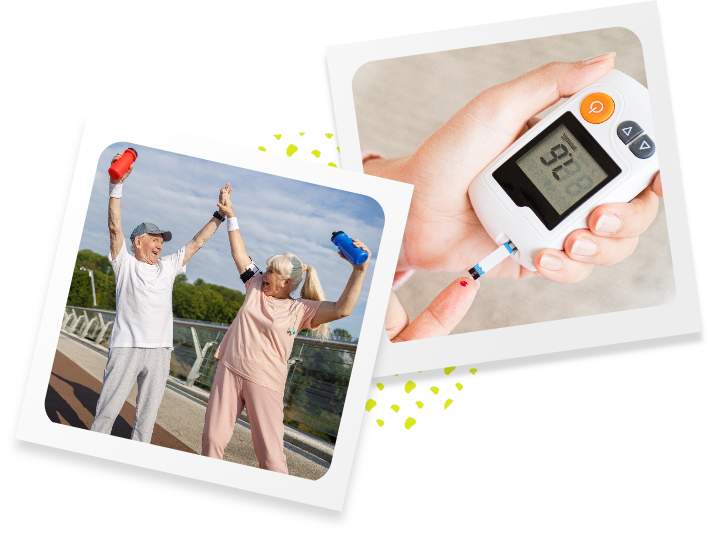Diabetes Type 2

What causes Type 2 Diabetes?
How can Bites Dietitians help?
We will not cut out any foods specifically, just show you how to eat all foods in a way that manages your blood sugars well.

An interesting fact about Diet and Type 2 Diabetes
Myth – you only get type 2 diabetes when you’re older. Type 2 diabetes is more common in people over the age of 45 years but is becoming more common in younger age groups including children.

How can Bites Exercise Physiologists help?
Bites Exercise Physiologists can provide you with an exercise plan that is suited to your physical activity level, goals and environment eg. whether you’d like to perform your exercise program at home, in a park or in a gym setting, we will design it to suit! We will use the equipment you already own or can help to recommend some equipment options if you’re not a gym person! (in fact alot of our clients prefer to exercise in the comfort of their own home or our clinic!) Specific types of exercise such as resistance training can help to build muscle mass which is metabolically active tissue that acts like a “sink” to soak up excess glucose floating around your bloodstream. Other styles of training such as HIIT training have been clinically shown to help reduce insulin resistance (by increasing insulin sensitivity) and improving glycemic control. Our Exercise Physiologists might also look at the patterns of your blood glucose levels and guide with what times of the day would be best for you to perform your exercises in order to keep your blood glucose (sugars) most stable throughout the day. We will also take into account old/current injuries and make sure your program is tailored specifically to you!
An interesting fact about exercise and Type 2 Diabetes
What improvement can you expect from a tailored dietary/exercise prescription?
Through following a diet and exercise prescription you will notice changes within days! Within 2 – 3 days of following a structured dietary/exercise plan you’ll already start to notice your post prandial (after meal) blood sugars improve! If a change in body composition is a goal that you’d like to work towards to help manage your diabetes, increases in muscle mass, and reductions to waist and weight will be evident from 1-2 weeks of following your plan. Within 2 – 3 months notable changes in your HbA1c and insulin levels within a blood test will be evident. Within 2 – 3 months you might also begin to rely less on your medications to control your blood glucose levels and we will communicate any changes with your GP, nurse, Endocrinologist and medical team so that dosages may be altered and/or ceased. You’ll also notice less frequent hyperglycaemic and hypoglycaemic episodes as your dietary intake and exercise habits begin to complement each other nicely.

Helpful things to bring/remember before your first appointment
- Pathology results such as HbA1c, Fasting Glucose, Oral Glucose Tolerance Test results (OGTT) and insulin studies
- List of medications you are on and dosages
- If you are tracking your blood glucose levels at home, your notebook and/or food diary
- Any medical history from your GP or specialist that might be helpful for us to know
That You Might Like To Try
